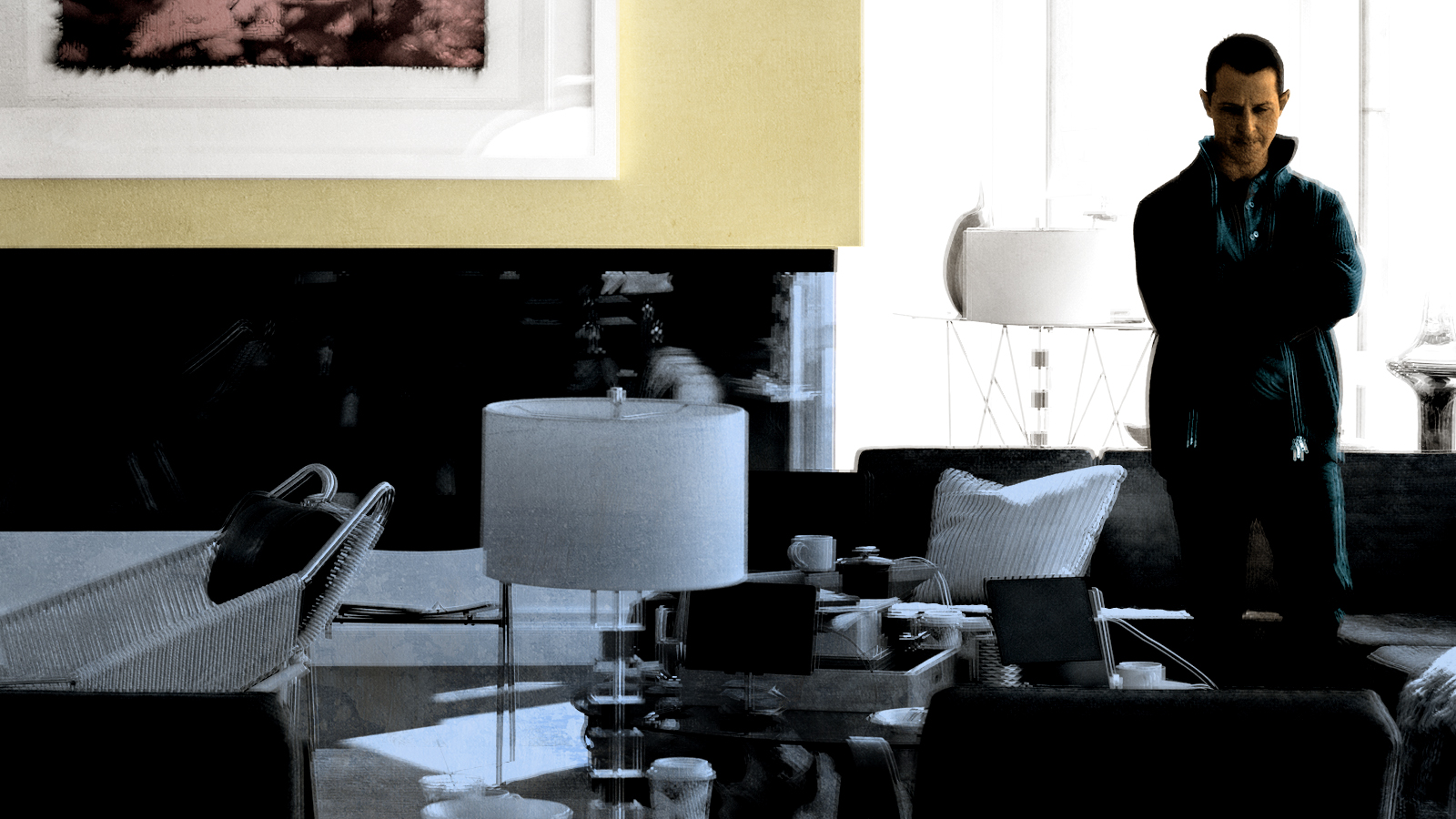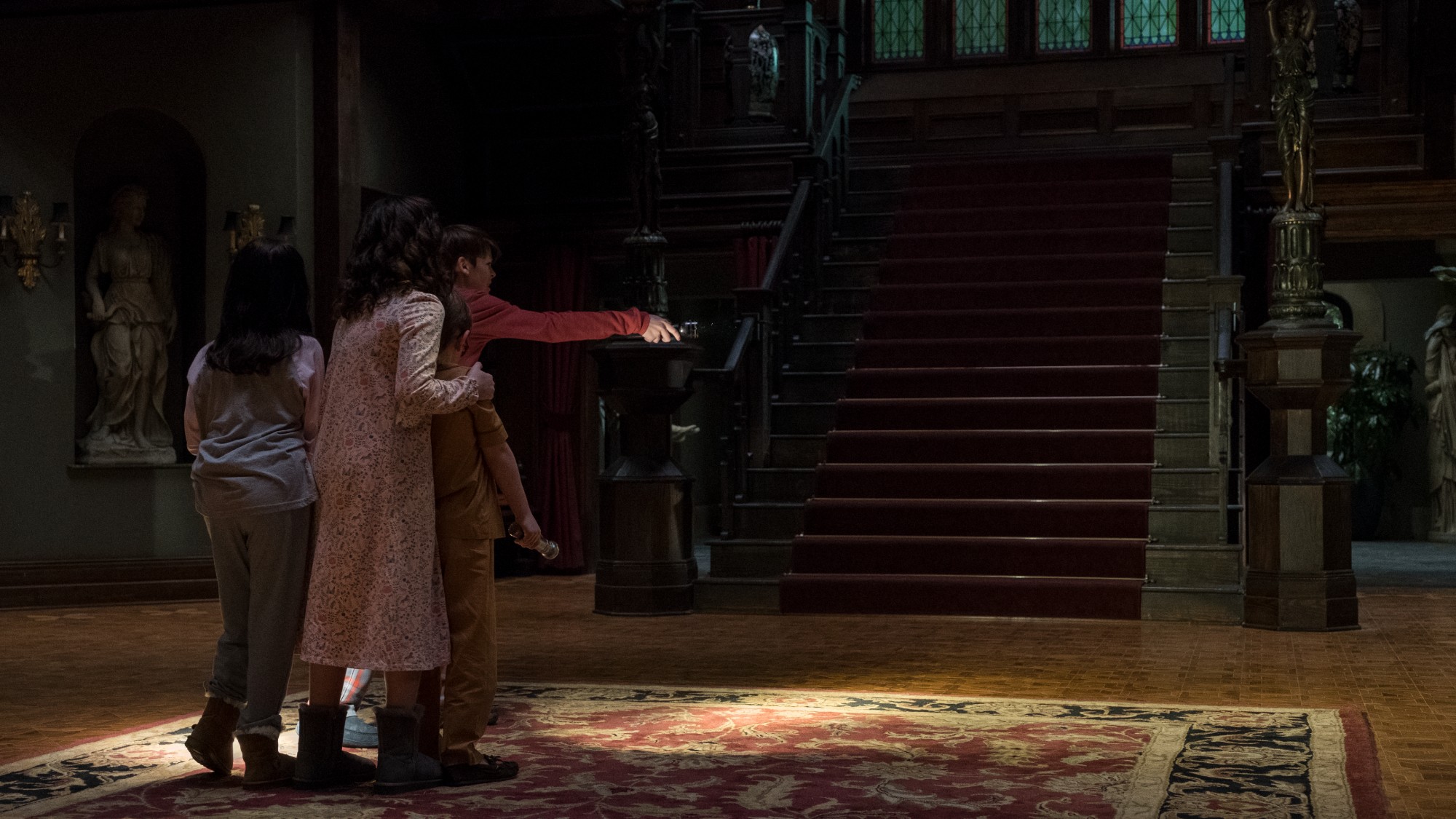The Succession finale was brilliant. Time to end the series.
There's no need for another season after an ending like that


A free daily email with the biggest news stories of the day – and the best features from TheWeek.com
You are now subscribed
Your newsletter sign-up was successful
It's hard for visual media like film and TV to depict certain subjects without glorifying them. "Some films claim to be antiwar," director François Truffaut noted in a 1973 interview, "but I don't think I've ever really seen an antiwar film." Because screen violence is inherently aestheticized, no matter how gory the images, "[e]very film about war ends up being pro-war."
The ambiguous quality Truffaut found in war films also applies to depictions of great wealth. No matter how vicious or unhappy the rich appear, it's hard not to admire their luxurious possessions and beautiful surroundings. In the last decade of the Cold War, Communist authorities in Romania decided to permit broadcasts of Dallas, believing its depiction of capitalist corruption would remind viewers of the benefits of socialism. The effect, of course, was the opposite: For many Romanians as much as for Americans, to see the Ewings was to wish to be the Ewings.
The HBO drama Succession, which concluded its third season on Sunday, has struggled to avoid unintentional glorification. The writers have inflicted the typical miseries — jealousy, boredom, addiction — on its billionaire characters. But the show's cinematographers, costumers, and set designers have also created a singularly unappealing physical environment. With exception of rented palaces where new money cavorts in the ruins of European aristocracy, the rooms are impersonal, the landscapes barren, the lighting harsh. Even the clothes, though obviously expensive, are mostly ill-fitting and unflattering.
The Week
Escape your echo chamber. Get the facts behind the news, plus analysis from multiple perspectives.

Sign up for The Week's Free Newsletters
From our morning news briefing to a weekly Good News Newsletter, get the best of The Week delivered directly to your inbox.
From our morning news briefing to a weekly Good News Newsletter, get the best of The Week delivered directly to your inbox.
Like the putatively antiwar cinema Truffaut criticized, though, these technical devices don't have their intended effect. There's no way to show extremely powerful people asserting their will without provoking envy among the audience. Earlier this season, patriarch Logan Roy (Brian Cox), loosely modeled on Rupert Murdoch, is shown effectively selecting the Republican nominee for the presidency. It doesn't matter that Roy picks a fascistic toady who will pump up his ratings. You can't see that power without wanting it — which is why Logan may join Michael Corleone, Tony Montana, and Walter White as putative anti-heroes who were received simply as heroes.
That's why the show should just stop after last night's finale. Without spoiling complicated and ultimately irrelevant details of the plot, Logan reveals the monster he's always been. It's not just that he has contempt for his employees, his viewers, and his country. He has such contempt for his own children that he'd rather sell the business to a tech mogul than let them take over.
The title Succession evokes hereditary nobility vying for precedence in line to the throne — as does the family name Roy, derived from the Old French word for "king." The finale makes that comparison explicit as the hapless Cousin Greg (Nicholas Braun) courts a young woman who's something like eight lives removed from a claim to the Grand Duchy of Luxembourg. An updated version of Henry James' American innocents abroad, Greg doesn't realize that he's in almost the same position, except that Logan's position is the one that really matters. Like the merger of old media and new tech firms that ends Logan's childrens' hopes of taking his place, Greg and the contessa are poised to make a marriage of equals.
There's an important difference between the Roys and their aristocratic predecessors, though: That is, their fundamental indifference to honor, beauty, or legitimacy. The principle of hereditary succession assumes that power should be confined to one family, which may eventually grow to be worthy of it. Although it transpires that Logan is trying to father another child, this time with his personal assistant, the truth is that he has no real interest in establishing a dynasty (not coincidentally, the title of another aspiration soap opera). Informing his dumbstruck children that the control of the firm will be passed out of family, Logan provides the triumphant explanation: "I f--king win."
A free daily email with the biggest news stories of the day – and the best features from TheWeek.com
That's a fitting epitaph for the series itself. There is no succession because there can't be — Logan is irreplaceable in his appetite, ego, and rage. That is as close to a moral critique that the television of wealth can hope to provide.
Samuel Goldman is a national correspondent at TheWeek.com. He is also an associate professor of political science at George Washington University, where he is executive director of the John L. Loeb, Jr. Institute for Religious Freedom and director of the Politics & Values Program. He received his Ph.D. from Harvard and was a postdoctoral fellow in Religion, Ethics, & Politics at Princeton University. His books include God's Country: Christian Zionism in America (University of Pennsylvania Press, 2018) and After Nationalism (University of Pennsylvania Press, 2021). In addition to academic research, Goldman's writing has appeared in The New York Times, The Wall Street Journal, and many other publications.
-
 The EU’s war on fast fashion
The EU’s war on fast fashionIn the Spotlight Bloc launches investigation into Shein over sale of weapons and ‘childlike’ sex dolls, alongside efforts to tax e-commerce giants and combat textile waste
-
 How to Get to Heaven from Belfast: a ‘highly entertaining ride’
How to Get to Heaven from Belfast: a ‘highly entertaining ride’The Week Recommends Mystery-comedy from the creator of Derry Girls should be ‘your new binge-watch’
-
 The 8 best TV shows of the 1960s
The 8 best TV shows of the 1960sThe standout shows of this decade take viewers from outer space to the Wild West
-
 The 8 best TV shows of the 1960s
The 8 best TV shows of the 1960sThe standout shows of this decade take viewers from outer space to the Wild West
-
 February TV brings the debut of an adult animated series, the latest batch of ‘Bridgerton’ and the return of an aughts sitcom
February TV brings the debut of an adult animated series, the latest batch of ‘Bridgerton’ and the return of an aughts sitcomthe week recommends An animated lawyers show, a post-apocalyptic family reunion and a revival of a hospital comedy classic
-
 The 8 best hospital dramas of all time
The 8 best hospital dramas of all timethe week recommends From wartime period pieces to of-the-moment procedurals, audiences never tire of watching doctors and nurses do their lifesaving thing
-
 The 8 best horror series of all time
The 8 best horror series of all timethe week recommends Lost voyages, haunted houses and the best scares in television history
-
 Scoundrels, spies and squires in January TV
Scoundrels, spies and squires in January TVthe week recommends This month’s new releases include ‘The Pitt,’ ‘Industry,’ ‘Ponies’ and ‘A Knight of the Seven Kingdoms’
-
 The best drama TV series of 2025
The best drama TV series of 2025the week recommends From the horrors of death to the hive-mind apocalypse, TV is far from out of great ideas
-
 The 8 best comedy series of 2025
The 8 best comedy series of 2025the week recommends From quarterlife crises to Hollywood satires, these were the funniest shows of 2025
-
 A postapocalyptic trip to Sin City, a peek inside Taylor Swift’s ‘Eras’ tour, and an explicit hockey romance in December TV
A postapocalyptic trip to Sin City, a peek inside Taylor Swift’s ‘Eras’ tour, and an explicit hockey romance in December TVthe week recommends This month’s new television releases include ‘Fallout,’ ‘Taylor Swift: The End Of An Era’ and ‘Heated Rivalry’
